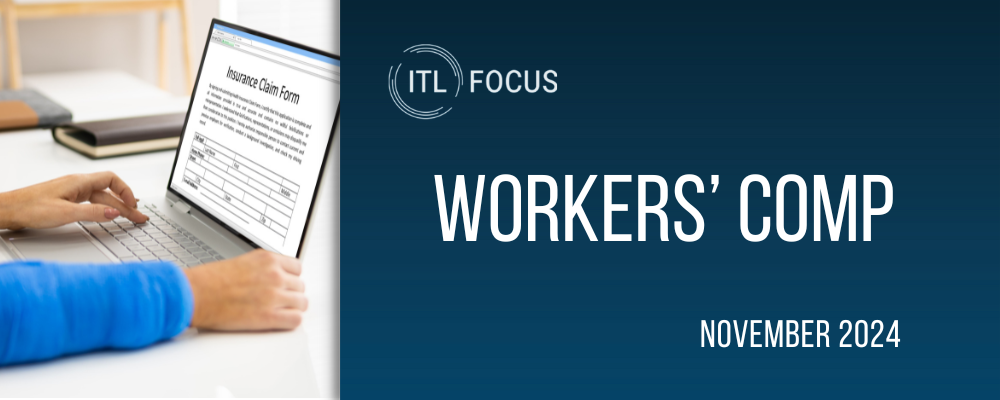Bill Zachry has long been a leading light on workers’ comp because of the pioneering work he did as the group vice president for risk management at Safeway, so I was delighted to catch up with him through the recent National Comp conference, where he was a co-chair. What I had never realized is just how personal the focus on recovery was for Bill. I knew him as someone who took a very broad view of the causes and effects in workers’ comp and knew he had achieved huge cost reductions at Safeway by being MORE attentive to injured workers, rather than trying to save at their expense. But I didn’t know that, as Bill told me: “My introduction to comp was as an injured worker. “My dad died when I was a senior in high school. I was putting myself through college. I was working at the Daly City recreation department an hour and a half every afternoon, and then four hours on Saturday. One day, I showed up at the park, and there were these two girls fighting. I went to break up the fight, and eight guys attacked me. “The knife went through the back, through the lung, through the diaphragm, through the spleen. I was in the hospital for a week, and they took out my spleen. “That was my introduction to comp.” He then explained the philosophy that I’ve long admired – and the stellar results that came with it. “Comp has been extraordinarily personal for me, and I found early on that if you take great care of the injured workers, if you do the right thing, get the right care at the right time, get them back to work, it’s the cheapest thing. “When I started at Safeway, my budget was $218 million a year. The second day on the job, I walked out on the claims floor, and I said, ‘The war stops today. Your job is not to fight the claims. Your job is to make sure that you take great care of the injured workers. They are your co-workers, not the enemy.’ “I said, ‘You are going to bend over far enough backwards that you will have a rug burn on your forehead.’ “Within five years, I had taken my budget from $218 million a year down to $105 million a year, with the same exposure. I took more than $100 million off my annual budget just by doing the right thing. It's amazing how that works so well.” His decree that his examiners would compromise and close every case met considerable resistance, so he told the examiners that he wouldn’t fire a single one of them even though the number of open cases would tumble. It turned out they were fine with lighter caseloads. That initial resistance is the sort of unintended consequence that he thinks about a lot and that he covers at length in this month’s interview. He offers a lot of sophisticated, practical advice on how to watch for those consequences and head them off – for instance, if you offer financial incentives for maintaining a clear record on safety, many injuries will no longer be reported, so you have to find ways to correct for that tendency. Bill also talks at length about the potential benefits of technology, ranging from today’s wave of AI innovations out to some truly futuristic capabilities through CRISPR, the gene-editing tool. He’s quite optimistic that the workers’ comp industry will continue to help drive down the frequency of injuries, as it has been doing for decades. So am I. Cheers, Paul
| 

